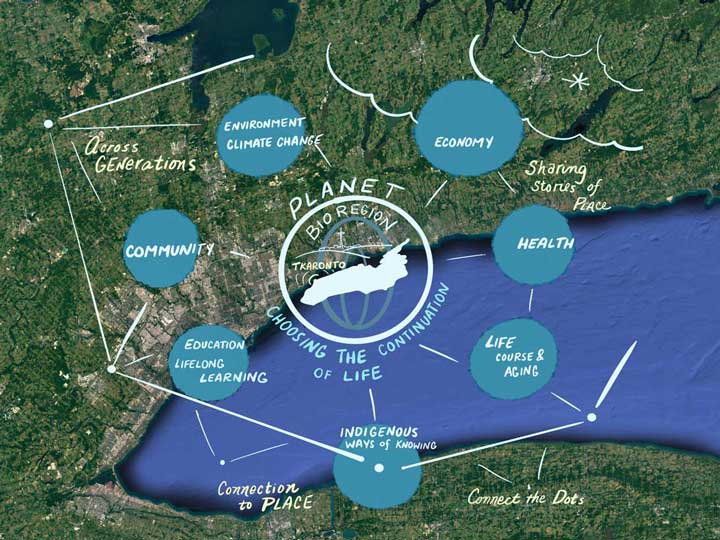Forum Replies Created
Viewing 7 posts - 1 through 7 (of 7 total)
Viewing 7 posts - 1 through 7 (of 7 total)
🎓 UK Ecomuseums
We’re delighted to share the recently published PhD thesis by Victoria McMillan, awarded by Nottingham Trent University:
📘 “Place matters: assessing the potential of the ecomuseum in the UK to (re)connect communities to their landscapes and help foster regenerative futures”
This groundbreaking research is the first large-scale study of ecomuseum practices in the UK. Victoria investigates how ecomuseums can promote a more holistic ecological understanding of place, helping to counteract “cultural severance” and strengthen the bond between communities and their landscapes.
Through case studies of five UK ecomuseums and data from nearly 400 participants, the thesis introduces the concept of **land connectedness** as a key to fostering resilience, inclusivity, and regenerative social-ecological futures.
🔗 Download the full thesis here: https://irep.ntu.ac.uk/id/eprint/53842/1/Victoria%20McMillan%202025.pdf
A valuable contribution for anyone working in heritage, sustainability, and community-based environmental education!
🎓 UK Ecomuseums
We’re delighted to share the recently published PhD thesis by Victoria McMillan, awarded by Nottingham Trent University:
📘 “Place matters: assessing the potential of the ecomuseum in the UK to (re)connect communities to their landscapes and help foster regenerative futures”
This groundbreaking research is the first large-scale study of ecomuseum practices in the UK. Victoria investigates how ecomuseums can promote a more holistic ecological understanding of place, helping to counteract “cultural severance” and strengthen the bond between communities and their landscapes.
Through case studies of five UK ecomuseums and data from nearly 400 participants, the thesis introduces the concept of **land connectedness** as a key to fostering resilience, inclusivity, and regenerative social-ecological futures.
🔗 Download the full thesis here: https://irep.ntu.ac.uk/id/eprint/53842/1/Victoria%20McMillan%202025.pdf
A valuable contribution for anyone working in heritage, sustainability, and community-based environmental education!
The new deadline of the call Is 2024 november 14

I momenti salienti dell’ultima giornata del Summit della Terra Bioregionale delle 7 Generazioni sono nel video https://www.youtube.com/watch?v=KBvxKv2Ie4M
Riassume le sessioni del convegno e spiega come possiamo lavorare alla storia della “Terra bioregionale”.
La GTB (Greater Tkaronto Bioregion) sta guidando e imparando dalle bioregioni che si stanno formando in tutto il pianeta. Stiamo cercando di #CambiareLaStoria di come viviamo gli uni con gli altri su un pianeta che cambia in tempi incerti.
In termini pratici, questo significa creare tre pilastri fondamentali in ogni bioregione: un Centro di apprendimento bioregionale (la struttura chiave), un Portafoglio di progetti (rigenerazione sociale ed ecologica) e una Fondazione bioregionale (che sostiene un ecosistema di finanziamento, un’economia rigenerativa e una governance).
Più info su https://www.legacyproject.org/7gen/summit0209.html
We also translated this chapter:
– Connecting the 21 Principles of Ecomuseums, the Sustainable Development Goals and Climate Action by Henry McGhie (italian and portughese)
On the DROPS webpage you can find links to the other McGhie’s work (in english) about museums and SDGs
In particular pay attention to the book “Museums and the Sustainable Development Goals” (2019), also available in Latvian, Hungarian and Spanish.
https://sites.google.com/view/drops-platform/tools/books/climate-action-book/ecomuseums-and-sdgs
“The Inside-Outside Model – Animating the Muses for Cultural Transformation Amid the Climate Crisis” by Douglas Worts and Raul Dal Santo is available in English and in Italian at https://sites.google.com/view/drops-platform/tools/books/climate-action-book/io-impacts-model
The Model is described in the chapter no. 2 (pag. 65) of the book “Ecomuseums and climate change”. In the chapter no. 14 (pag. 321) of the same book the authors show the application of the model in the case study of the Ecomuseum of Parabiago.
Gestire il patrimonio culturale: I risultati del progetto EcoHeritage
L’evento potrà essere fruito online con iscrizione obbligatoria compilando questo modulo: https://docs.google.com/forms/d/e/1FAIpQLSdpx4lDowTIl2rcJl5zHL3pyGAaaYADVKhHsGjE49qiLSZCWg/viewform
CONFERENZA
Data: 12 maggio 2023
Luogo: Aula Pagani, Università Milano Bicocca – Via Bicocca degli Arcimboldi, 8, 20100, Milano
Come arrivare:
Metro: linea viola, fermata Bicocca/Ponale
Treno: fermata Greco-Pirelli
Orario: dalle h 10.00 alle h 13:00 (CET)
Obiettivo:
Il convegno in lingua italiana illustrerà i risultati del progetto EcoHeritage “Gli ecomusei come approccio collaborativo al riconoscimento, alla gestione e alla protezione del patrimonio culturale e naturale” è un progetto finanziato dal programma Erasmus+ dell’UE con partner in Italia, Polonia, Portogallo e Spagna
Prima parte: disseminazione dei risultati del progetto:
Lo stato degli ecomusei in Italia e in Europa
Casi di studio per la gestione sostenibile del patrimonio culturale
La cassetta degli attrezzi degli ecomusei europei
La piattaforma web EEON per una rete europea
Il centro di apprendimento di Ecoheritage
Seconda Parte: Tavola rotonda con ecomusei ed esperti in ecomuseologia e processi partecipativi di gestione del patrimonio.
Terza parte: Dibattito
Questo evento si inserisce all’interno del Festival dello Sviluppo Sostenibile.
Please log in to report posts